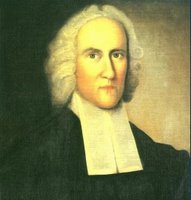
In Chapter 14 of the Westminster Confession of Faith, saving faith is distinguished from believing. Through the grace of faith, the elect are enabled to believe to the saving of their souls (paragraph 14.1). “By this faith, a Christian believes to be true whatsoever is revealed in the word…” (14.2.). The Confession does not teach that by this faith a Christian is enabled to have faith, for that would be unintelligible. Rather, the Confession teaches that by this faith – saving faith – God
enables his elect to believe. In other words, by distinguishing faith and belief the Confession teaches that God effects the grace of faith by the Spirit of Christ in the hearts of His elect, whereby those with true faith, when confronted with the propositions of Scripture whereby they are understood,
exercise this faith unto “obedience to the commands...” and many other “acts” of faith such as “accepting, receiving, and resting upon Christ alone for justification, sanctification, and eternal life…” Notwithstanding, these “acts” of faith - even the
principle act of faith - are not to be confused with the essence of faith, for as we have shown –
by faith one believes, which in its principle act is accepting, receiving and resting upon Christ alone for the whole of salvation. So, when a person is converted he is granted the gift of faith. In time that faith will grow to believe in x,y and z, and not just a, b, and c.
{In the like manner, repentance in the Westminster standards is distinguished from the acts of repentance. "Repentance unto life is an evangelical grace, the doctrine whereof is to be preached by every minister of the Gospel, as well as that of faith in Christ. By it [i.e. By repentance], a sinner, out of the sight and sense not only of the danger, but also of the filthiness and odiousness of his sins, as contrary to the holy nature, and righteous law of God; and upon the apprehension of His mercy in Christ to such as are penitent, so grieves for, and hates his sins, as to turn from them all unto God, purposing and endeavouring to walk with Him in all the ways of His commandments." In other words, by the grace of repentance, men repent. Accordingly, like faith, repentance can also be granted to infants prior to their having the ability to exercise their wills in response to the warnings of God.}
Because faith is distinguished from believing in the Confession’s chapter on saving faith, it is most reasonable to read 11.1 of the same Confession with that in mind. “Those who God effectually calls, He also freely justifies, not by infusing righteousness in to them…nor by imputing faith itself, the act of believing, or any other evangelical obedience to them, as their righteousness…” In other words, it is most reasonable to interpret the Confession as not defining "faith itself" as “the act of believing" (let in contradicts chapter 14!), but rather again distinguishing faith from the act of believing, just as it distinguishes faith from "evangelical obedience." In other words, the Confession teaches that God does not credit either (a) faith, (b) the act of believing, or (c) any other evangelical obedience to the sinner when he is pardoned, accepted and accounted as righteous.
Given such a distinction between faith and belief, it is easy to understand how a regenerate infant who is united to Christ can be justified by grace
through faith alone – apart from understanding, believing and willfully embracing gospel propositions. However, if justification is through faith alone and the three “classic” elements of faith are necessary conditions for justification, then infants (and those incapable of being called) cannot be pardoned for their sin! However, if infants can be justified, yet cannot have faith, then justification is by regeneration alone, apart from faith. At the very least, those who wish to maintain both that God may be merciful to infants and that justification is through a
cognizant-faith alone have some theological reconciling to do. The simply solution is that those three elements (even if they are in some sense redundant or even tautological) pertain to
belief and not to faith narrowly considered in seed form. After all, what about one who comes to Christ and then slips into a coma? He isn't believing in Christ (nor likely assenting, etc. to anything for that matter), but certainly he possesses the irrevocable gift of
faith (though not being exercised). We must keep in mind that we are saved through faith so that our salvation might be of grace. Faith is the immediate result of regeneration, even prior to it being exercised by believing in Christ! Again, "by this faith one believes."
Now someone might say, isn't faith "the assurance of things hoped for, the
conviction of things not seen - and isn't 'conviction' the very heart of
assenus (or the "emotional element of faith)?" Well, one good question deserves another. Is the essence of "love" laying down one's life for his friends, or is laying down one's life for his friends a demonstration or evidence of love?
 Hit Counters
Hit Counters








